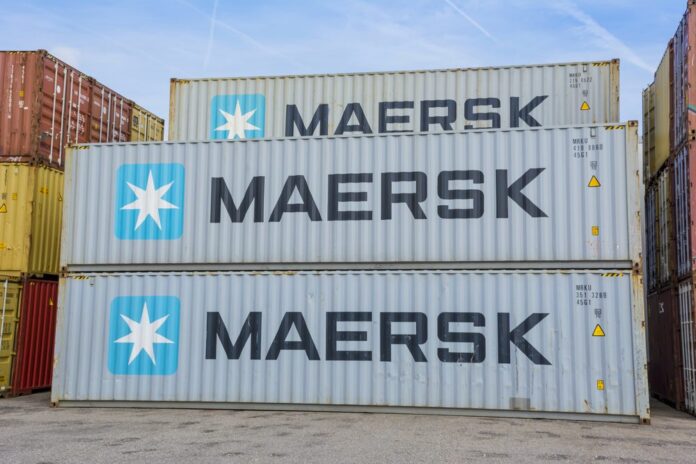Global shipping giant Maersk has revised its full-year profit forecast upward after reporting stronger-than-expected demand for container shipping, defying widespread concerns over sluggish global trade and geopolitical tensions.
The Danish company, often seen as a bellwether for international commerce, noted that higher freight rates and increased volumes helped offset uncertainty stemming from trade disputes and volatile economic conditions.
The revised guidance comes as Maersk continues to benefit from resilient demand on key trade routes, particularly in Asia-Europe and transpacific lanes.
Despite worries about weakening consumer spending and disruptions tied to the US-China trade standoff, the company reported that cargo volumes have remained stable, supported by restocking efforts and firm consumer demand in several markets.
In response, Maersk now expects earnings before interest, tax, depreciation, and amortization to be significantly above earlier projections.
Operational efficiencies and cost control measures have also played a key role in improving the company’s margins. Maersk has pursued strategic investments in logistics, inland services, and digital platforms to streamline supply chains and reduce dependency on volatile freight rates. These efforts are beginning to bear fruit, contributing to the improved outlook.
Fuel costs, which have fluctuated sharply due to oil market instability, have been partially offset through surcharges and fuel-efficient vessel deployment.
The company also highlighted its ongoing commitment to decarbonization and is gradually expanding its fleet of vessels powered by alternative fuels such as methanol, aligning with global sustainability goals.
Despite geopolitical headwinds and economic uncertainties, Maersk’s performance reflects a broader trend in the shipping industry, where some carriers are seeing improved profitability driven by disciplined capacity management and rising demand for integrated logistics services.
The company remains cautiously optimistic, noting that while risks remain, current market conditions suggest sustained demand in the near term.
The upward revision in guidance has been welcomed by investors, with shares of Maersk rising in response to the announcement. As global trade routes continue to evolve, the company appears well-positioned to maintain momentum and navigate future challenges.
Written By Ian Maleve



















